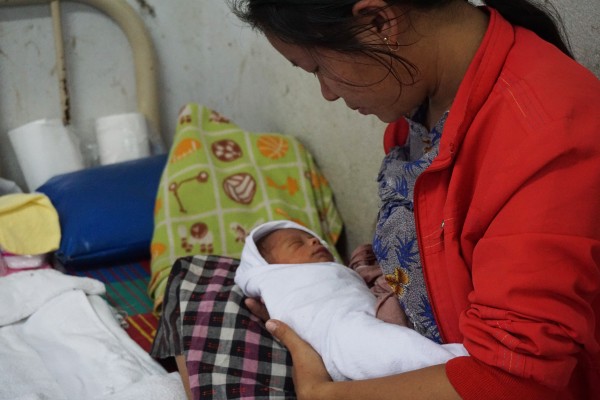Burma’s lower house of parliament on Thursday approved two bills that have been criticised for their potential to negatively affect women and their rights in the country.
The Buddhist Women’s Special Marriage Bill and the Population Control Healthcare Bill form part of a controversial package of four bills, known as the Race and Religion Protection Laws package, which were passed through a vote on 19 March.
Objection was raised by several MPs, including those from the opposition National League for Democracy, the ruling Union Solidarity and Development Party and a number of ethnic Chin Christian MPs during debate.
The Buddhist Women’s Marriage Bill stipulates that Buddhist women who are married to men of other religions must be allowed to retain her Buddhist faith, and to freely practice Buddhist activities such as meditation, worshipping Buddhist statues and making merit through donations. If a husband is found to have forcibly converted her to his religion, or to have forced her to abandon her Buddhist faith, he could be punished with imprisonment or a fine.
[related]
The Population Control Healthcare Bill, limiting childbirth to one baby per mother every three years, specifies that surveys will be conducted in various administrative regions across Burma to assess the balance between birth rates, migration rates and regional resources, after which reports will assess whether there is a risk of resource shortages. The bill was passed in the upper house in February this year. The bills now need to be discussed in the bicameral parliament before being adopted into law by presidential decree.
A petition by the conservative Buddhist monkhood group, the Association for the Protection of Race and Religion, commonly known by the Burmese acronym Ma-Ba-Tha, last year received 100,000 signatures in favour of the Race Protection package. President Thein Sein subsequently ordered the drafting of four bills, namely the Religious Conversion Bill, Monogamy Bill, Population Control Healthcare Bill, and Buddhist Women’s Marriage Bill.
Many observers see the Race Protection package as an attempt to subjugate and control the Muslim community in Burma. Recent bloody confrontations between Muslims and Buddhists have led to a rise in nationalism among Burmese Buddhists across the country. Human Rights Watch say more than 100,000 people have been displaced by communal violence in Arakan State in recent years.
In January, 180 women’s groups, networks and civil society organisations voiced their opposition to the proposed race protection package in a signed statement, which they delivered to parliament.
The women’s group’s statement has highlighted that in many respects, the proposals would be unconstitutional. It also points out that many of the laws would be in contravention of international legislation, including the Convention Eliminating All Forms of Discrimination Against Women (CEDAW) and the Universal Declaration on Human Rights (UDHR).



